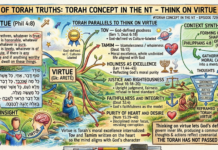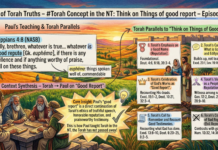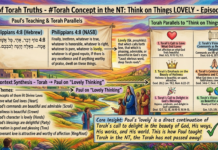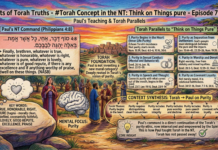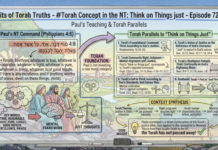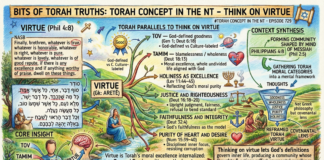Bits of Torah Truths – #Torah Concept in the NT: Let us Provoke to Love and Good Works – Episode 623
Hebrews 10:24
נָשִׂים לִבֵּנוּ אִישׁ אֶל רֵעֵהוּ, לְעוֹרֵר זֶה אֶת זֶה לְאַהֲבָה וּלְמַעֲשִׂים טוֹבִים.
#torah #torahwisdom #torahtruth #torahforlife #torah4you #torahtruth
Hebrews 10:24
10:24 and let us consider how to stimulate one another to love and good deeds, (NASB)
https://www.matsati.com/index.php/category/bits-of-torah-truths/
There are meaningful Torah parallels to the exhortation in Hebrews 10:24: “Let us consider one another to provoke unto love and good works.” While the Torah doesn’t use the word “provoke” in this positive sense, it repeatedly calls the covenant community to actively encourage, model, and cultivate love and righteous action. – Torah Parallels – Deuteronomy 6:5–7 Teaching Love Through Daily Life, “You shall love the Lord your God with all your heart… And these words… you shall teach them diligently to your children…” The Torah links love for God with active instruction and modeling. “Teach diligently” implies intentional shaping, provoking others toward love and obedience through daily engagement. Leviticus 19:18 Love Your Neighbor, this is the ethical core of the Torah. While not framed as provocation, it’s a command that implies communal responsibility, each person is called to embody and inspire love through action. Deuteronomy 10:19 Love the Stranger, this command urges empathy-driven action. It’s a call to provoke compassion and justice, rooted in shared experience. Exodus 23:4–5 Help Your Enemy’s Animal. This law provokes good works even toward adversaries. It’s a practical ethic that transcends emotion and demands active righteousness. And Deuteronomy 15:7–8 Open Your Hand to the Poor. This is a direct call to provoke generosity. The Torah doesn’t just permit good works, it commands them, especially in response to need. The Torah’s ethic is communal, proactive, and love-centered. It doesn’t use the language of “provocation” as Hebrews does, but it absolutely calls for intentional encouragement of love and good deeds, through teaching, example, and covenantal responsibility. This is how the Author of the book of Hebrews taught Torah, the Torah has not passed away!

